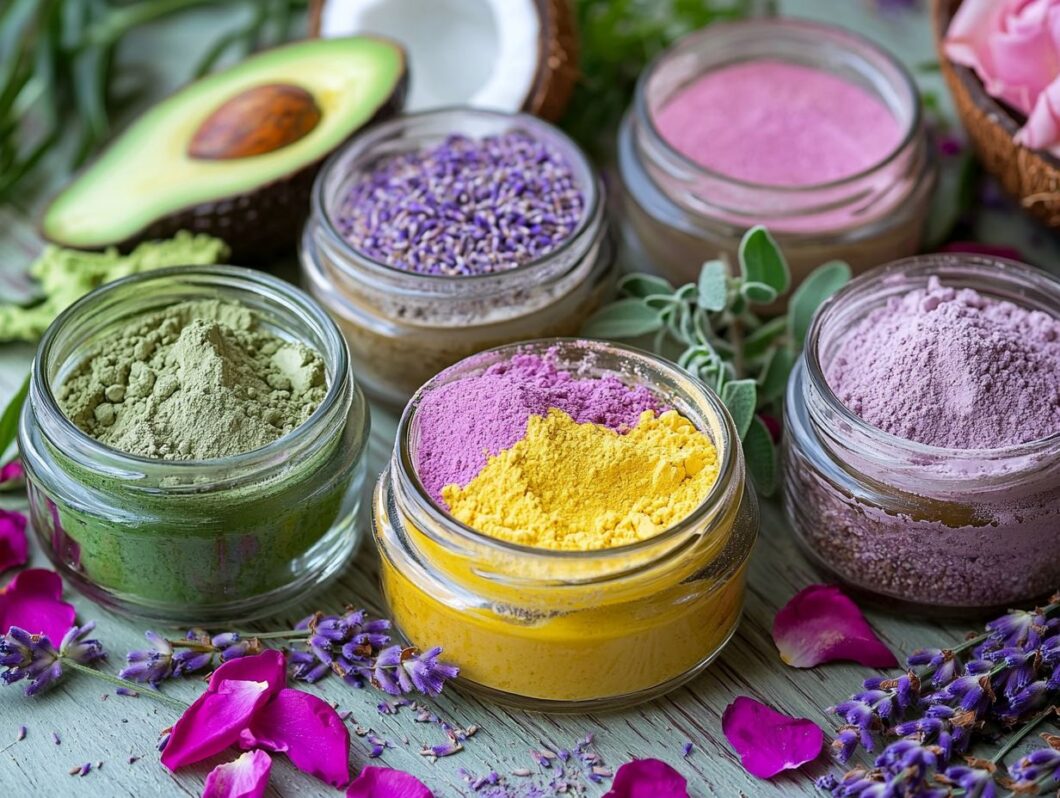In the ever-evolving world of beauty, I recognize that the power of ingredients plays a pivotal role in determining the effectiveness of skincare and makeup products. As consumers become increasingly ingredient-savvy, it is essential for me to understand what goes into my favorite products. This discussion will cover the latest trends in beauty ingredients, highlighting their benefits and what I should look for when selecting the right products for my skin. I will explore both emerging and anticipated ingredients that promise to shape the future of my beauty routine.
Key Takeaways:
The Importance of Ingredients in Beauty Products
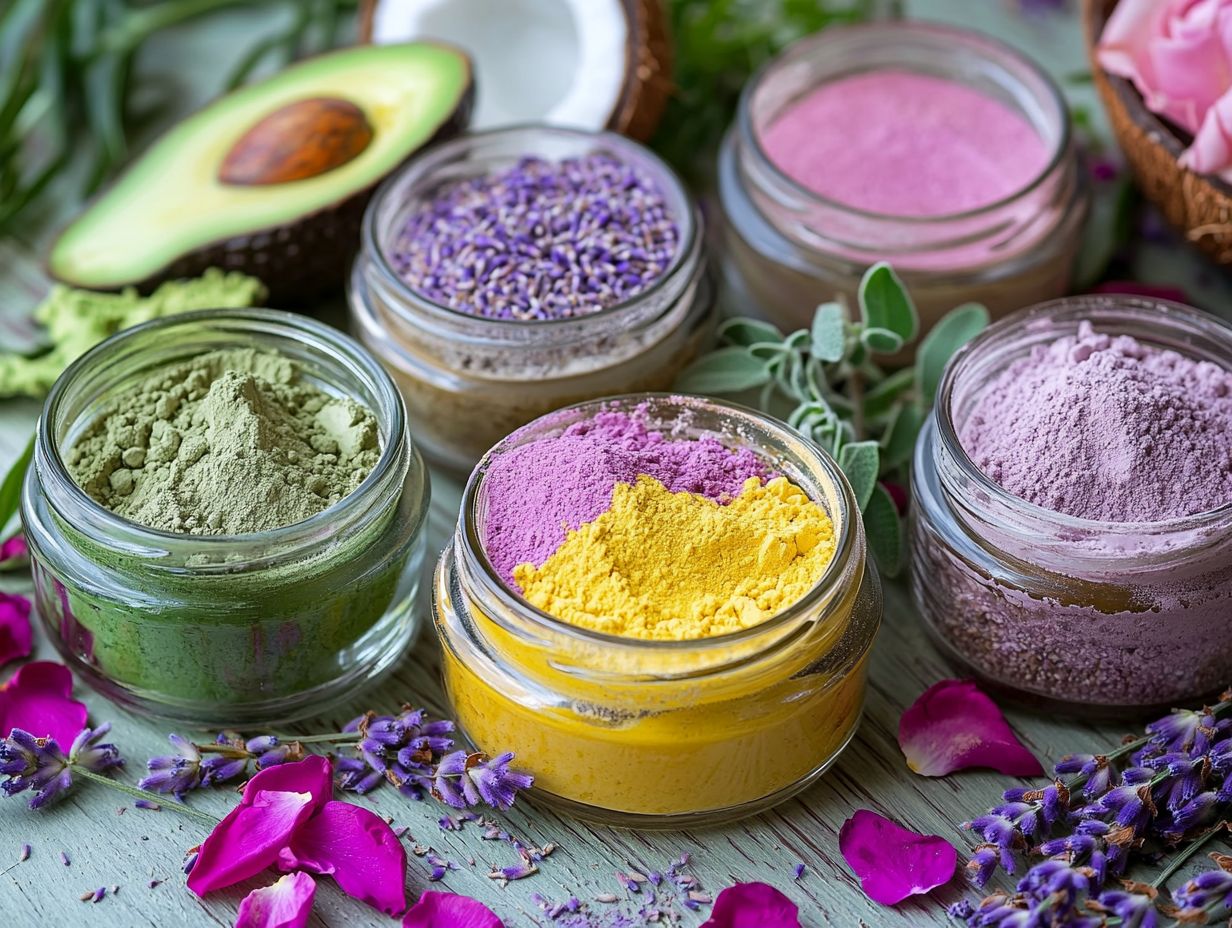
In the beauty industry, I recognize that the significance of ingredients in skincare products cannot be overstated. They play a crucial role in determining product effectiveness, influencing consumer preferences, and promoting overall skin health.
With the rising demand for ingredient-led beauty, I see that consumers are increasingly discerning about what goes into their products, seeking formulations that deliver effective skincare solutions for various skin concerns.
Key ingredients such as:
- retinoids
- hyaluronic acid
- niacinamide
- ceramides
are leading the way in skincare innovation, reflecting market intelligence that emphasizes transparency and efficacy. This focus compels brands to invest in advanced skincare technology and formulations that not only enhance product potency but also prioritize safety and sustainability.
New and Popular Ingredients in Beauty
The beauty industry is continually evolving, presenting new and popular ingredients that cater to diverse skincare needs and shifting consumer preferences.
I have observed that ingredients such as retinoids, hyaluronic acid, niacinamide, and peptides are receiving significant attention for their effectiveness in promoting skin rejuvenation and addressing signs of aging. Meanwhile, salicylic acid remains a staple for treating acne.
Additionally, I notice that natural ingredients like green tea, oat extract, and Cica are gaining popularity due to their soothing properties and their ability to strengthen the skin barrier against environmental stressors.
This dynamic landscape illustrates a clear shift toward ingredient-led beauty, where consumers increasingly seek scientifically-backed solutions for their skincare concerns.
Exploring the Latest Trends
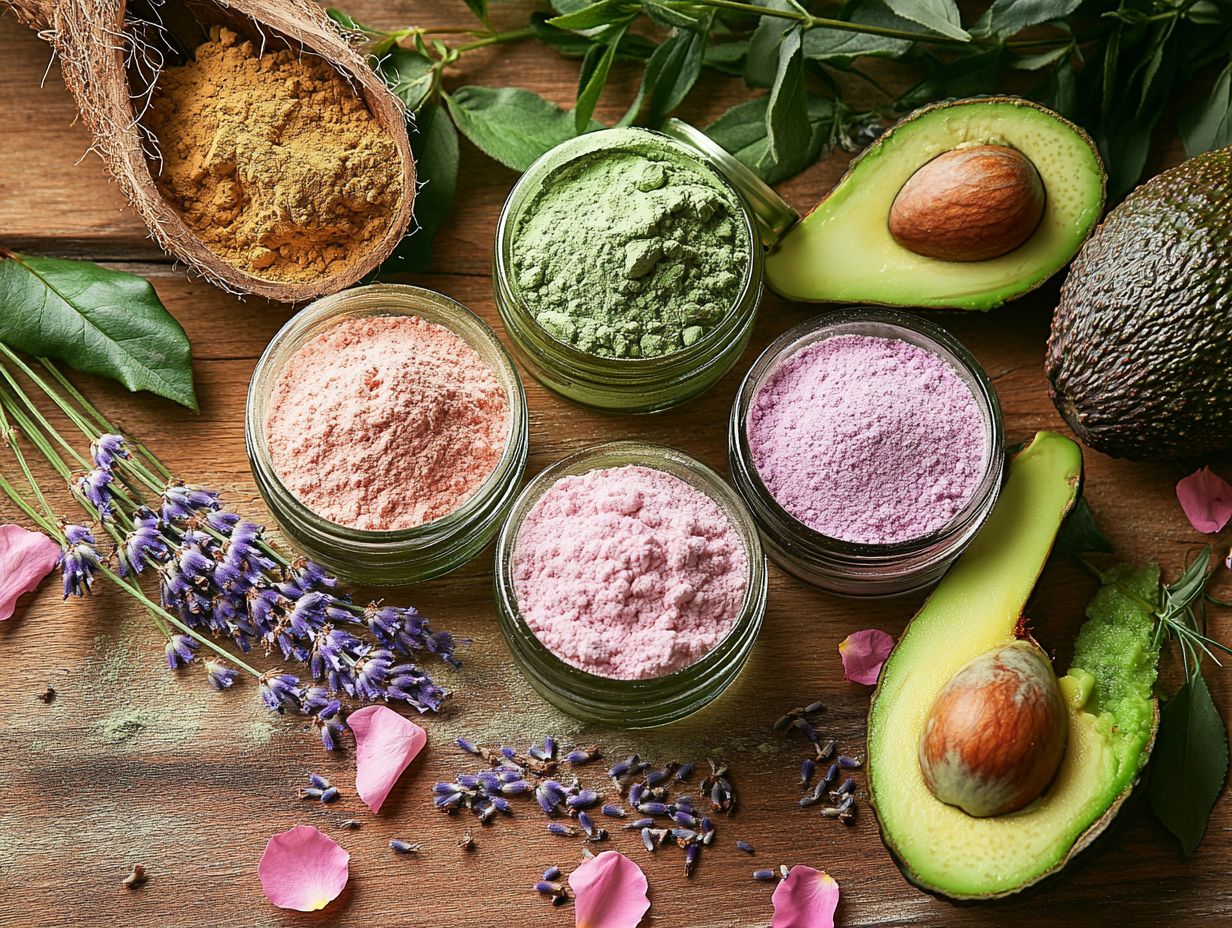
In recent years, I have observed a significant shift in skincare trends towards ingredient-led beauty, underscoring the importance of product formulations that prioritize effective and potent ingredients.
Innovations in biotechnology have introduced upcycled ingredients, enhancing sustainability within the beauty industry while delivering impressive results for skin health. This trend highlights a growing consumer awareness regarding ingredient sourcing and the ethics of skincare products, compelling brands to adopt more transparent practices and invest in effective skincare innovations.
As I engage with consumers, it is evident that they are increasingly seeking products that align with their values. This has prompted a noticeable shift towards clean beauty formulations that are free from harmful additives, pushing many companies to improve their ingredient transparency.
Additionally, the integration of artificial intelligence in product development allows brands to analyze consumer preferences more accurately, enabling them to tailor their offerings to meet specific needs. This convergence of technology and consumer demand not only enhances product efficacy but also fosters loyalty among a discerning customer base that prioritizes ethical consumption.
Ultimately, this leads to a harmonious balance between innovation and sustainability in the skincare landscape.
Benefits and Uses of Each Ingredient
Understanding the benefits and uses of each skincare ingredient is essential for me to make informed choices about beauty products, ensuring that they effectively address my individual skin concerns and health needs.
In the ever-evolving world of skincare, I recognize that consumers, including myself, are becoming increasingly savvy, actively seeking products that are rich in effective ingredients tailored to our unique needs.
For example, I find salicylic acid particularly beneficial when addressing acne, as its exfoliating properties help unclog pores and reduce breakouts. Conversely, I appreciate the role of antioxidants like vitamin C, which are pivotal in protecting my skin from environmental stressors while brightening my complexion.
Additionally, I value glycolic acid for its gentle exfoliation properties that promote cell turnover and enhance skin texture. As I explore various formulations, educating myself about the benefits of each ingredient is crucial to achieving and maintaining healthy, glowing skin.
What to Look for in Beauty Products
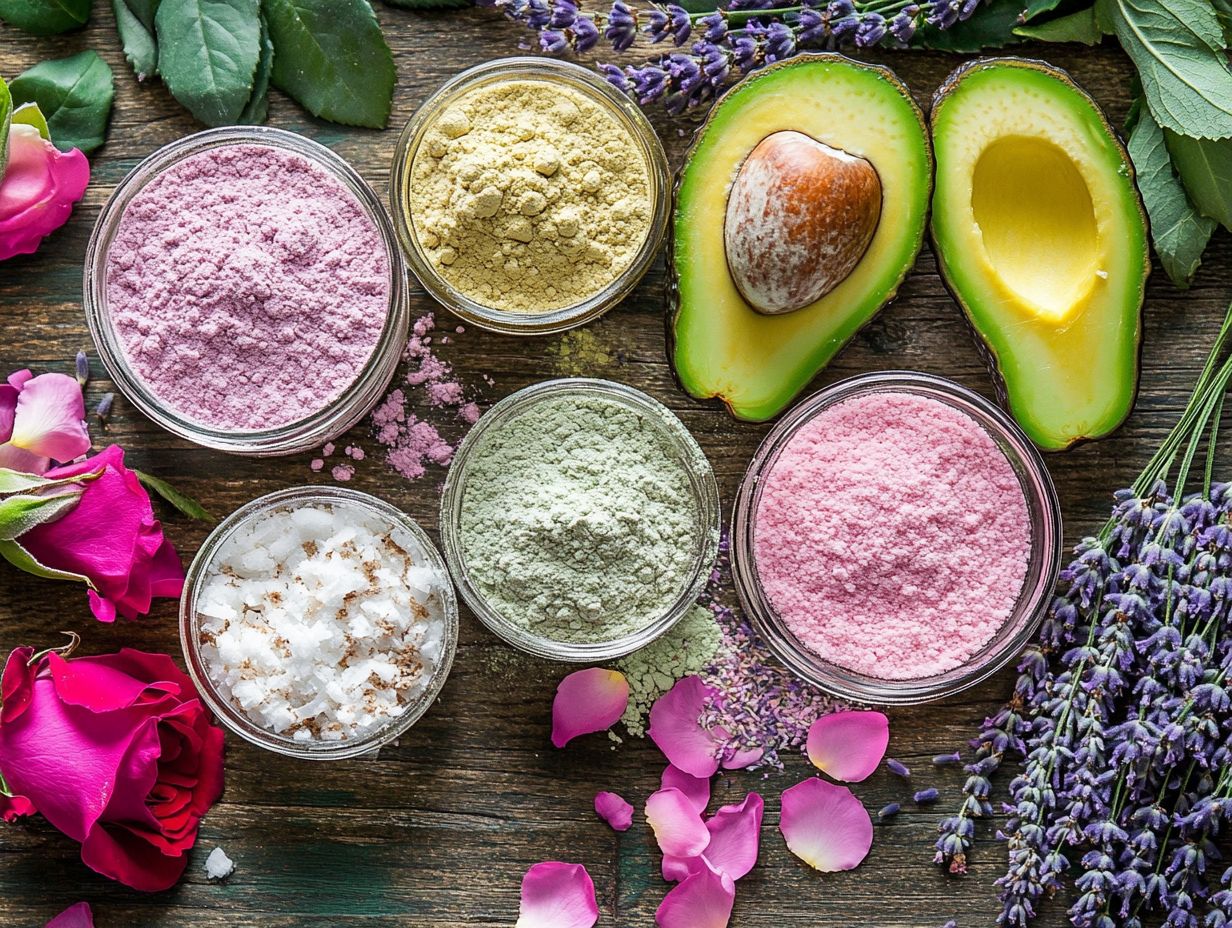
When selecting beauty products, I recognize the importance of understanding what to look for in skincare formulations to effectively address my individual skin concerns and overall health.
Key considerations involve evaluating the potency of active ingredients, such as retinoids, hyaluronic acid, and niacinamide, which offer proven benefits for various skin issues ranging from hydration to anti-aging.
Additionally, I prioritize gentle formulas that include antioxidants and soothing components like green tea or Cica, as these can significantly enhance skin health while minimizing irritation.
This reflects a thoughtful and informed approach to my skincare routine.
Tips for Choosing the Right Ingredients for Your Skin
Choosing the right skincare ingredients is essential for achieving optimal skin health and effectively addressing specific concerns. To start, I familiarize myself with my skin type—whether it’s oily, dry, or sensitive—so I can select products that meet my unique needs.
I look for effective skincare ingredients with proven efficacy, such as retinoids for anti-aging or salicylic acid for acne treatments. I prioritize product potency and simplicity, opting for formulas that contain fewer, well-researched ingredients to align with current consumer preferences for clean and effective skincare.
By understanding these elements, I can make informed decisions that truly cater to my skin’s requirements. For instance, if I have dry skin, I incorporate hydrating ingredients like hyaluronic acid or glycerin to help retain moisture. Conversely, if I have oily skin, I may benefit from lightweight oils such as jojoba or non-comedogenic moisturizers.
I always find it advisable to patch test new products to gauge skin reactions, especially if I have sensitive skin. Regularly checking the ingredient list for potential irritants and adapting my routine as my skin’s needs evolve is also crucial.
This thoughtful approach ensures a balanced skincare routine, contributing to clearer, healthier skin over time.
Upcoming Ingredients in Beauty
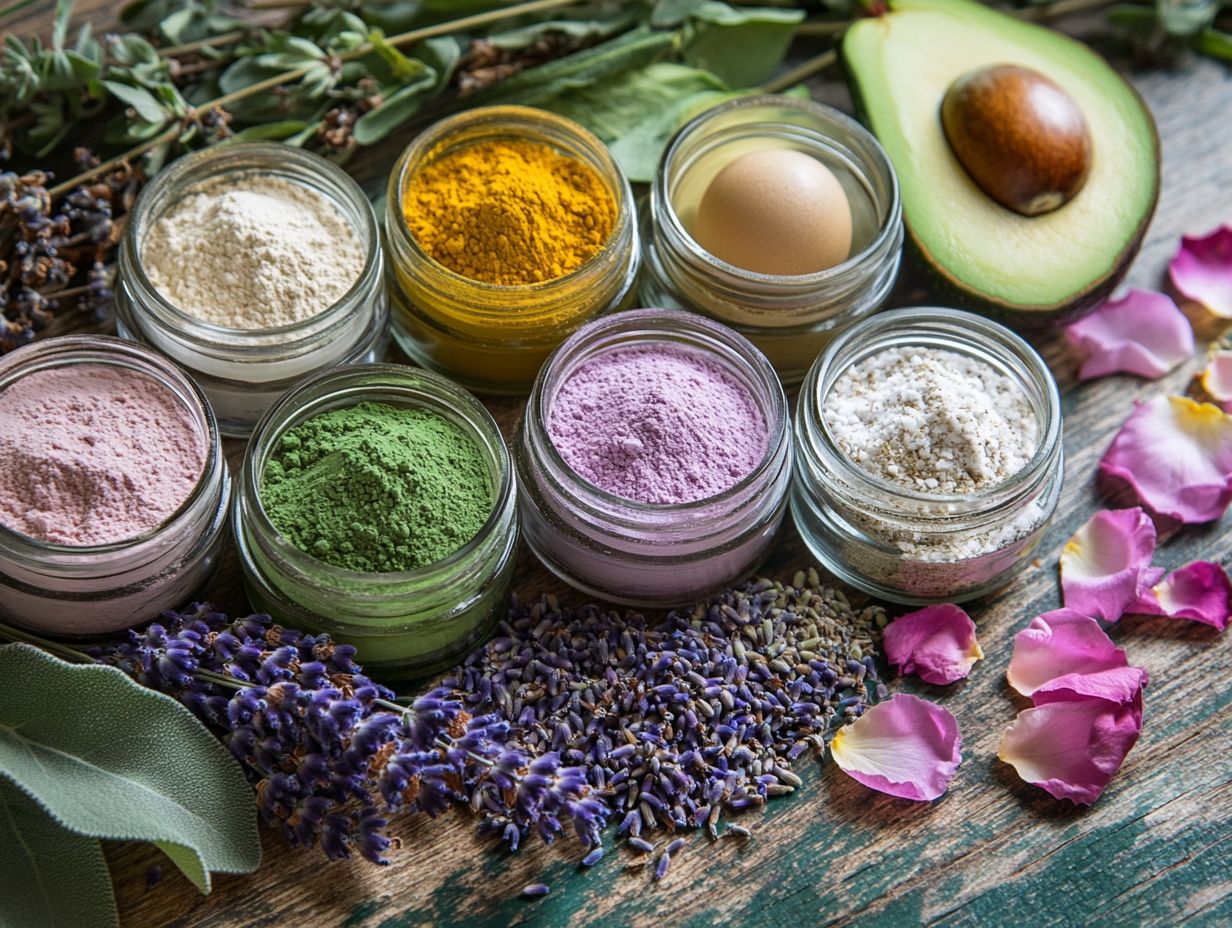
As the beauty industry continues to evolve, I recognize that upcoming ingredients will play a crucial role in shaping future skincare trends and innovations.
Biotechnology is leading the charge in developing new active ingredients that address specific skin concerns while also emphasizing sustainability and environmental impact.
For instance, I am exploring emerging ingredients derived from natural sources, which have the potential to offer protective benefits against environmental stressors while maintaining their efficacy. This reflects a significant shift towards cleaner and more effective skincare solutions.
Predictions for the Future of Skincare and Makeup
Looking ahead, I see the future of skincare and makeup being driven by continuous innovation and a deep understanding of consumer preferences. With more consumers seeking effective solutions that align with their values, the beauty industry should anticipate a significant increase in demand for transparency, sustainability, and scientifically-backed products.
I am confident that advancements in skincare technology will lead to formulations that not only deliver visible results but also prioritize skin health and environmental responsibility, establishing a new standard for beauty brands worldwide.
In this dynamic landscape, trends like personalized skincare, powered by artificial intelligence and data analytics, will emerge, enabling consumers to identify products tailored to their unique skin types and concerns.
The integration of clean ingredients will become an essential expectation, as consumers grow increasingly aware of the impact of harmful chemicals on both their skin and the environment.
As digital platforms continue to shape purchasing decisions, I believe that brands leveraging social media and influencer collaborations effectively will position themselves at the forefront of this beauty revolution, ultimately creating a future that resonates with the values of the modern consumer.


